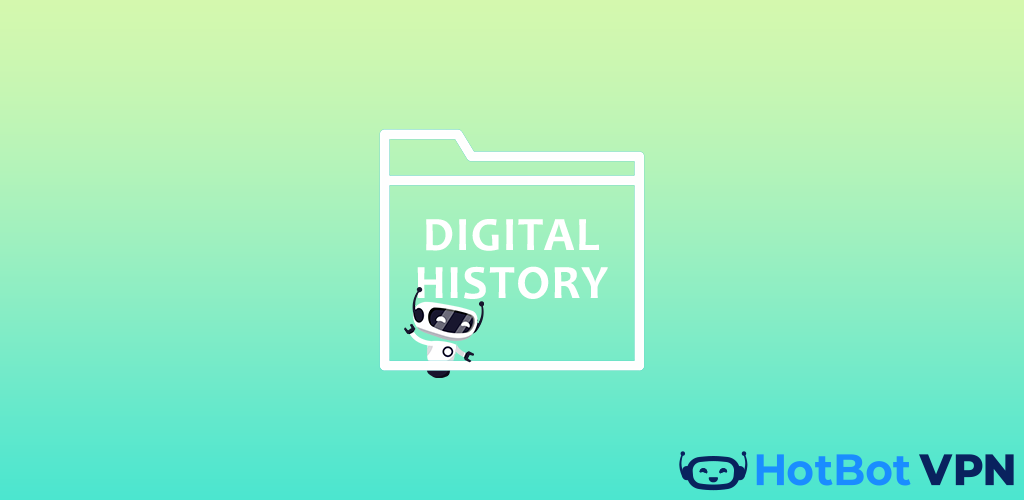November 21, 2022
Privacy Tip of the Week: Monitor Your Online Presence
Posted by Rhiannon

Hey, you. Yeah, you. We have a job for you. Open up your favourite search engine right now and type in your name. While it might seem vain and narcissistic at first, periodically searching your name online is actually incredibly important to maintaining your online safety, privacy, and reputation. Here are four excellent reasons to frequently monitor your online presence:
- Protect yourself against identity theft
- Maintain a good reputation
- See which sites have your info
- Prevent confusion
Protect Yourself Against Identity Theft
When you search the web for your name, you should take a look at each result individually. This is helpful for a couple of reasons. The first is that it’s easy for someone to make a spoof profile using your own name. This effectively hijacks your online identity. If you see a web page in your name that doesn’t actually belong to you, you can report it. The second reason to check each result individually is to scan the content you publish – especially your social media – for sensitive information that is best taken down. For example, many websites use security questions. They include things like “what is the name of your first pet.” If you’ve posted a picture of that pet with their name in the caption, hackers can use that information to gain access to your accounts. In addition to being mindful of what you post on social media, you can protect against identity theft by:
- Using a no-log VPN. This type of online tool encrypts your activity and keeps you anonymous online, to prevent snoops from acquiring your information.
- Learning to recognize phishing. Phishing is a type of cyberattack in which a criminal attempts to trick you into sharing private information through email or phone.
- Monitor your credit report. If you’ve fallen victim to identity theft, your credit report will let you know if the person responsible has been using your money.
Monitor Your Online Presence to Maintain a Good Reputation
It’s estimated that 15% of people have at least one reputation-damaging result on the first page of their search engine results. These results might include images or posts suggesting recreational drug use, alcohol use, sexually explicit photos, examples of use of bad language, and more. When our names are searched as part of job interviews, college admissions, and even in the dating world, negative results form the basis of our reputations offline. By knowing what content is being shared about you, you can work to combat anything damaging. Do this by contacting the websites that host the content or by flooding the search with positive results.
See Which Sites Have Your Info
One drawback to using the internet is that it’s easy for websites to scrape our information if we’re not careful. However, by monitoring your online presence you can often find sites that have personal data on you. Data may include phone numbers, addresses, and more. While we can’t guarantee that you’ll be able to get this sometimes compromising information removed, you can at least reach out to the individual websites to try.
Prevent Confusion
If you have a common name (hello, John Smiths of the world), chances are there’s someone else out there with it. They also probably have an online presence. This can confuse others who are looking you up. It may even tarnish your reputation if someone mistakes you for this other person. If you know in advance that someone searching your name might come across content about this stranger, you can warn them what to watch out for, or try to build your presence stronger to push other results onto different pages.
Far from being narcissistic, searching your name online is a smart way to protect your privacy, safety, and reputation.
To protect yourself further, browse the web privately and safely with HotBot VPN.
Posted by Rhiannon
More Blog Posts
February 14, 2023
How the Investigatory Powers Act Impacts Citizen Privacy
In 2016, the United Kingdom passed the Investigatory Powers Act or IP Act, into law. This act empowered the government and related agencies to access and collect citizen data, without consent. Critics immediately slammed the new law. The media dubbed it the “Snoopers’ Charter.” Meanwhile, Edward Snowden described the act as “the most extreme surveillance […] Read moreFebruary 14, 2023
How to Easily Unblock Wikipedia with HotBot VPN
Wikipedia puts a wealth of information at your fingertips. Everything from the biography of Alexander Graham Bell to the basics of quantum computing can be instantly opened by curious browsers. But what happens when you can’t access that information? Whether a business network blocks it or a particular country censors it, don’t let that slow […] Read moreFebruary 14, 2023

